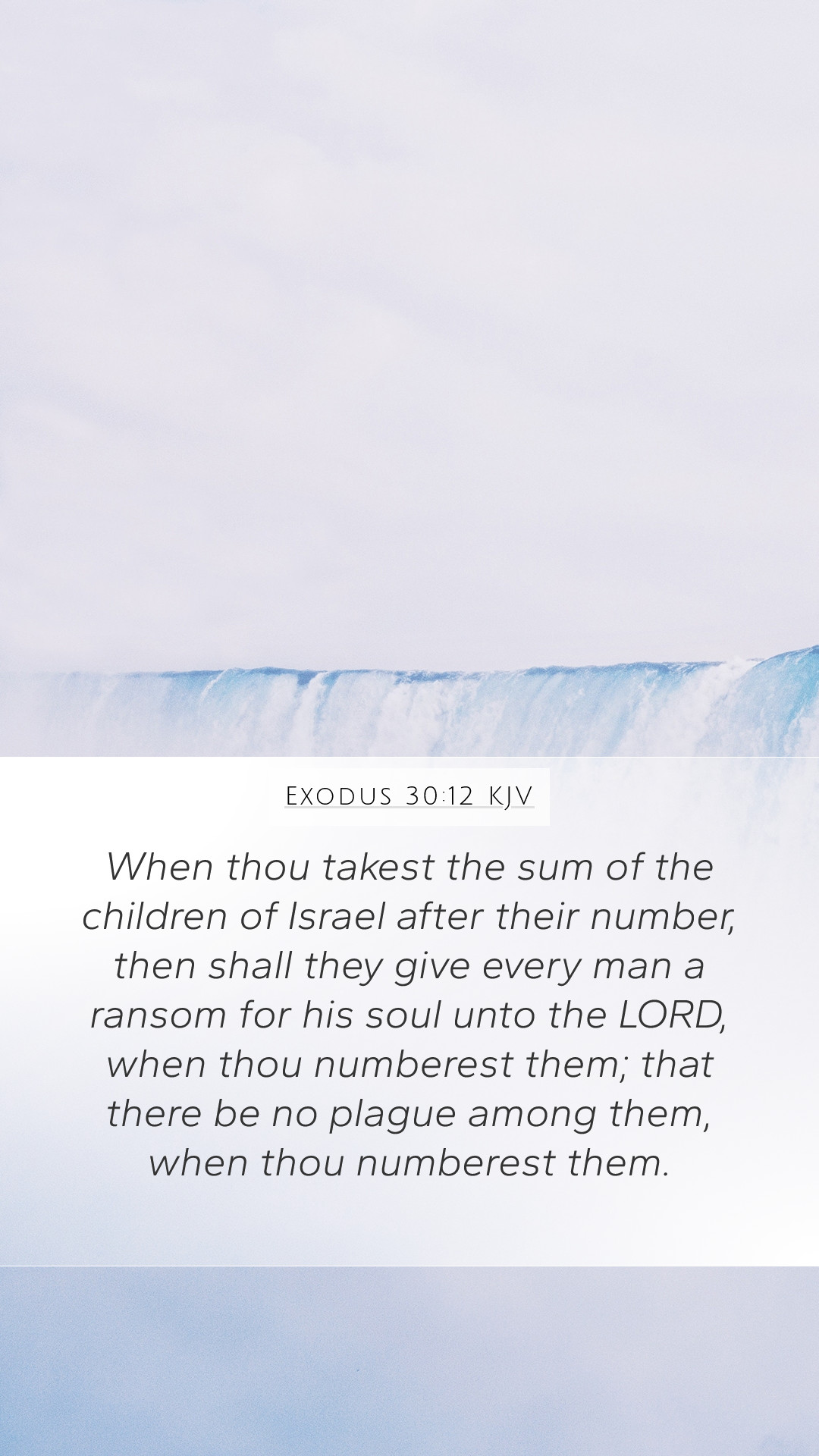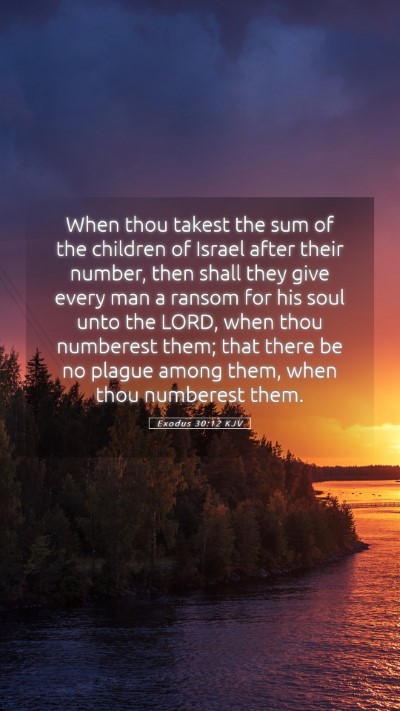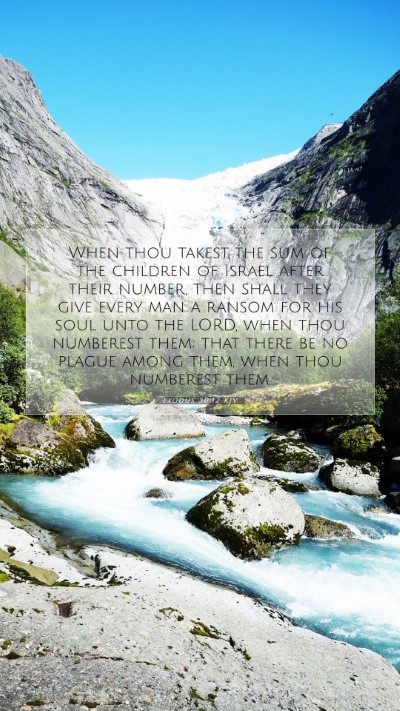Understanding Exodus 30:12
Bible Verse: Exodus 30:12 - "When you take the census of the people of Israel, then each shall give a ransom for his life to the Lord, when you number them, that there be no plague among them when you number them."
This verse serves as a critical instruction concerning the census of the Israelites. It emphasizes the importance of recognizing the value of each individual as a creation of God, while also highlighting a theological principle that money cannot truly 'redeem' life, but rather serves as an acknowledgment of God's sovereignty and grace.
Bible Verse Meanings
Exodus 30:12 can be understood through various lenses presented in public domain commentaries. Here are some insights:
-
Matthew Henry:
Matthew Henry reflects on the idea that conducting a census carries spiritual implications; each person's count serves as a reminder of their importance and relationship with God. By requiring a ransom, the community acknowledges their dependence on divine grace to avoid punishment and maintain health.
-
Albert Barnes:
Barnes emphasizes the preventative measure against divine wrath. The ransom signifies protection from judgment that could result from taking a census without appropriately honoring God. It establishes a principle that counting the people involves a sacred duty and respect for God's commands.
-
Adam Clarke:
Clarke elaborates on how the census itself may have led to pride or a sense of entitlement among the Israelites. The ransom acts as a tangible reminder to keep humility and gratitude at the forefront, ensuring the people remain aware that their lives are ultimately in God's hands.
Bible Verse Interpretations
This verse has important implications for understanding God’s nature and His relationship with mankind. Let's explore some interpretations:
-
God’s Justice:
God demands accountability among His people. The requirement for a ransom highlights that sin and judgment are serious matters.
-
The Nature of Sacrificial Giving:
The act of giving a ransom reflects the overarching theme of sacrifice present throughout Scripture, foreshadowing true redemption found in Christ.
-
Community Responsibility:
This commandment underscores the concept of collective responsibility within the faith community, pointing to the interdependence of individuals within the body of believers.
Biblical Exegesis
The analysis of Exodus 30:12 involves examining both the historical context and the broader narrative of the Exodus itself. Here are several key points:
-
Historical Context:
The census takes place in a time of transition for Israel as they journey from slavery in Egypt to becoming a nation under God’s law. Such counting signifies the establishment of identity.
-
Theological Themes:
This verse points to the gravity of human life and God's protective nature, serving to bind the community together under a collective obligation to honor Him.
-
Relevant Symbolism:
The ransom can be interpreted as indicative of the price of sin and the need for atonement, aligning the verse with themes present in the later sacrificial system of the Old Testament.
Application of Bible Verse
When considering how to apply Exodus 30:12 to daily life, one can take the following insights:
-
Personal Reflection:
Each individual should reflect on their personal relationship with God and recognize the preciousness of their life and soul.
-
Community Engagement:
The verse encourages believers to engage with their faith communities, recognizing the importance of collective accountability.
-
Remembrance of Grace:
The ransom also serves as a reminder to be grateful for the redemption offered through Christ, who paid the ultimate price for sin.
Related Bible Cross References
- Exodus 30:15 – Discusses the proportionality of the ransom based on means.
- Numbers 1:2 – Another mention of the census and its implications.
- Leviticus 17:11 – The importance of the blood for atonement, emphasizing sacrificial themes.
Conclusion
Exodus 30:12 encapsulates a key principle of biblical teaching regarding the sanctity of life, the necessity of recognizing God’s authority, and the communal responsibilities of believers. It challenges individuals to view their lives through the lens of God’s mercy and grace.
By delving into scripture analysis, understanding the historical context, and applying these lessons to daily life, believers can deepen their faith and appreciate the richness of biblical teachings.


